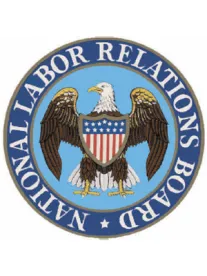Substantial changes are afoot at the National Labor Relations Board (NLRB). Most notably, these include the firing of the NLRB’s General Counsel Peter Robb and the rescission of ten of Robb’s General Counsel Memoranda. The New Acting General Counsel further ordered the withdrawal of an unfair labor practice complaint against UNITE HERE challenging a pre-recognition neutrality agreement. This latter decision is at odds with guidance provided by the NLRB over the last several months and is certainly indicative of a transformation taking place at the agency under the Biden administration. These changes are discussed in detail below.
President Biden’s Shakeup at the NLRB
On January 20, President Biden fired Robb after the General Counsel refused to resign. The NLRB General Counsel is an appointment that requires Senate confirmation and consists of a four-year term. Robb’s term was set to expire in November. Robb’s firing marks the first time in the history of the NLRB that a President has fired the agency’s General Counsel before expiration of their term. In his place, President Biden named Peter Sung Ohr as “Acting General Counsel” of the NLRB. Ohr is a career employee of the NLRB. Despite the temporary nature of his appointment, Ohr has quickly started undoing many of Robb’s policies.
Memorandum GC 21-02
On February 1, 2021, Ohr issued Memorandum GC 21-02, wherein he cited Section 1 of the Act, which “makes clear that the policy of the United States is to encourage the practice and procedure of collective bargaining and to protect the exercise by workers of their full freedom of association, self-organization, and designation of representatives of their own choosing for the purpose of negotiating the terms and conditions of their employment.” Ohr then determined “that a number of outstanding General Counsel Memoranda are either inconsistent with the above-described policies and/or Board law, or are no longer necessary.” In so doing, Ohr rescinded the following ten GC Memoranda issued by his predecessor:
-
GC 18-04, Guidance on Handbook Rules Post-Boeing (June 6, 2018) (instructing Regions on the placement of various types of employer rules into the three categories set out in the then-recent Board decision in The Boeing Company, 365 NLRB No. 154 (Dec. 14, 2017)). Ohr decided that GC 18-04 was “no longer necessary, given the number of Board cases interpreting Boeing that have since issued.”
-
GC 18-06, Responding to Motions to Intervene by Decertification Petitioners and Employees (Aug. 1, 2018) (requiring Regions to no longer oppose intervention in ULP hearings by proposed Intervenors such as individuals who have filed a decertification petition or circulated a document upon which the employer has unlawfully withdrawn recognition of the collective-bargaining representative). Ohr determined that “the approach reflected in GC 18-06 is inconsistent with prior practice.”
-
GC 19-01, General Counsel’s Instructions Regarding Section 8(b)(1)(A) Duty of Fair Representation Charges (Oct. 24, 2018) (seeking change in Board law to require unions raising a “mere negligence” defense to a DFR allegation concerning a union’s grievance handling to establish the existence of established, reasonable procedures or systems in place to track grievances; classifying a union’s failure to communicate grievance decisions and/or respond to a grievant’s inquiries as arbitrary conduct rather than “mere negligence”).
-
GC 19-03, Deferral under Dubo Manufacturing Company (Dec. 28, 2018) (instructing Regions to defer under Dubo [142 NLRB 431 (1963)], or consider deferral thereunder, of all Section 8(a)(1), (3), (5) and 8(b)(1)(A), and (3) cases in which a grievance was filed and not to apply Babcock & Wilcox Construction Co., 361 NLRB 1127 (2014) (“Babcock”) to cases that could be deferred under Dubo). Since Babcock was overruled by United Parcel Services. Corp., 369 NLRB No. 1 (Dec. 23, 2019), Ohr determined that GC 19-03 is outdated.
-
GC 19-04, Unions’ Duty to Properly Notify Employees of Their General Motors/Beck Rights and to Accept Dues Checkoff Revocations after Contract Expiration (Feb. 22, 2019) (requiring Regions to urge the Board to overturn Food & Commercial Workers Local 700 (Kroger Limited Partnership), 361 NLRB 420 (2014) and to adopt the D.C. Circuit’s holding in Penrod v. NLRB, 203 F.3d 41 (D.C. Cir. 2000) requiring unions to provide the reduced amount of dues and fees for dues objectors in the initial Beck notice; requiring Regions to urge the Board to overturn Frito-Lay, 243 NLRB 137 (1979) and limit dues authorization window periods; finding unions’ certified mail requirements unlawful; and mandating certain union communications with employees concerning untimely revocation requests).
-
GC 19-05, General Counsel’s Clarification Regarding Section 8(b)(1)(A) Duty of Fair Representation Charges (Mar. 26, 2019) (relating to GC 19-01).
-
GC 19-06, Beck Case Handling and Chargeability Issues in Light of United Nurses & Allied Professionals (Kent Hospital) [367 NLRB No. 94 (Mar. 1, 2019)] (Apr. 29, 2019) (instructing Regions investigating agency fee objector cases to require unions to provide detailed explanations of the union’s chargeability decisions for each major category of expenses and the method used to determine the portion of expenses chargeable in mixed expenditure categories instead of requiring objectors to explain why an expenditure is nonchargeable; requiring unions to categorize lobbying expenses as nonchargeable and to account for any other secondary costs used to support its lobbying activities; finding no amount de minimis).
-
GC 20-08, Changes to Investigative Practices (June 17, 2020) (instructing Regions on how to proceed during investigations in connection with securing the testimony of former supervisors and former agents, and how audio records should be dealt with during investigations). Ohr determined that GC 20-08 should be rescinded because portions are inconsistent with prior practices, and noted that “Regions should continue to not accept recordings that violate the Federal Wiretap Act and to apprise individuals who proffer recorded evidence when it may violate state law.
-
GC 20-09, Guidance Memorandum on Make Whole Remedies in Duty of Fair Representation Cases (June 26, 2020) (instructing Regions to urge the Board to overrule Ironworkers Local Union 377 (Alamillo Steel), 326 NLRB 375 (1998) and adopt an “arguable merit” standard that reverses the burdens of proof and imposes full liability on a union for its grievance-handling absent the union establishing that the grievance lacked merit).
-
GC 20-13, Guidance Memorandum on Employer Assistance in Union Organizing (Sept. 4, 2020) (requiring Regions to urge the Board in charges involving union neutrality agreements to adopt the “more than ministerial aid” standard used in union decertification cases).
While some of these actions will have little impact on employers (especially those involving Duty of Fair Representation and Beck fee objector cases), others undoubtedly will alter the playing field for employers, and Ohr concluded GC 21-02 with a promise to issue “[f]uture memoranda setting forth additional new policies…in the near future.”
Previous Guidance on Neutrality Pacts
The rescinding of GC 20-13 (involving union neutrality agreements) was particularly notable, as such agreements have been more frequently utilized by labor unions to bolster their ranks. As described in our previous blog, former NLRB General Counsel Peter Robb took aim at neutrality agreements in a Guidance Memo issued September 4, 2020. The memo, available here, called for stricter scrutiny of such agreements citing their lack of true neutrality and arguing for a bright line to separate lawful neutrality agreements/provisions from those that interfere with employee rights.
At their most basic, a neutrality agreement is a contract in which an employer agrees to remain neutral in any organizing efforts by a union. However, neutrality agreements often veer into employer support of the organizing effort by providing the union with employee contact info, allowing non-employee union organizers access to company property, voluntarily recognizing the union as the employees’ representative once a majority of the employees sign union authorization cards, and more. The memo argued that many of these additional provisions provide an unlawful amount of support to unions in violation of federal labor law. The memo argued that the easier to apply “more than ministerial aid” standard should be applied and stated that the above-mentioned provisions would run afoul of this standard if included in a neutrality agreement with a union.
New Acting General Counsel Reverses Position
A complaint challenging the neutrality agreement entered into by the Seattle-area UNITE HERE union local and the Pioneer Square Embassy Suites was originally brought in November of 2019. The challenged agreement gave the union access to hotel property and provided the union with a list of all employees’ names, jobs, and contact information. Such provisions were clearly at odds with Robb’s September 2020 guidance memo. Originally, Region 19 declined to prosecute either the employer or the union. In November 2019, Robb sustained an appeal, ordering Region 19 to reverse course and issue the complaint.
On January 29, 2021, on the instructions of Biden-selected Acting General Counsel, the Seattle Regional Director rescinded the complaint against the union and employer rather than let it proceed to a trial conducted by an Administrative Law Judge that was set to begin on February 16. The General Counsel’s office has decided to drop the charges against the employer and union stating that the complaint does not state a violation of current Board law.
Ohr’s actions, coupled with his rescission of GC 20-13, indicate that his office will no longer seek to change the current Board precedent on neutrality agreements.
Key Takeaway – Employers Should Expect Continued Volatility at the Board
Ohr’s reversal of the General Counsel’s office’s position on neutrality agreements is likely to be the tip of the iceberg. It is anticipated that the Acting General Counsel will press pause on other policy priorities set forth during Robb’s tenure.
At least one legal challenge to Ohr’s authority has already been asserted by an employer to an ongoing NLRB proceeding, arguing that Ohr lacks the authority to process unfair labor practice cases in light of President Biden’s unprecedented firing of Robb and appointment of Ohr.
After Biden’s nominee for the position is confirmed, employers should expect the General Counsel’s office to begin taking even more aggressively pro-union actions. This will occur before President Biden even gets the chance to make personnel changes to the five-member Board. The Board’s composition remains intact until August 2021, but the agency’s prosecutorial priorities and guidance will change before that.
Interestingly, the motion challenging Ohr’s authority could be decided by the existing Republican-majority board, which creates an added layer of uncertainty as to how the Board may decide the motion.
We will continue to monitor developments in this area and provide updates when relevant.
Law clerk Myles Moran contributed to this article.




 />i
/>i

